Wait, Before You Flush…
When our kids were growing up, the rule was no potty talk at the table. Of course, that just emphasized their need to tell fart jokes, their favorite topic, and then laugh hysterically. Now, in a strange twist of events, I talk about poop and it is they who want to censure me. If you’re a water junkie like me, global wastewater is a fascinating topic, and one covered extensively at the Global Water Alliance’s April 5th Symposium at the Wharton School of the University of Pennsylvania. Speakers from around the world brought their best ideas and biggest worries to the symposium: by 2050, there will be over nine billion of us on the planet who are all going to be thirsty — so much so that the World Economic Forum sees the lack of fresh water as the biggest threat to human survival. Yet, I left that gathering of activism, forward thinking professionals (and eager students) with well-reasoned hope: we will not only survive, but thrive as long as we get the messaging right.
The U.N.’s Sustainable Development Goal (SDG) 6.3 states: By 2030, improve water quality by reducing pollution, eliminating dumping and minimizing release of hazardous chemicals and materials, halving the proportion of untreated wastewater and increasing recycling and safe reuse globally.
A lofty goal by any standard and also courageous. Eliminate dumping? Halve the proportion of untreated waste? Increase safe reuse? It seems impossible given our current supply-side economics which inherently requires the continued creation, production, and consumption of goods. Therein lies the key to success and survival: change the way we think about consumption, including waste and wastewater. In doing so, the most pressing topics of our time, the ones that could literally bury us — whether in wastewater, plastic, or hazardous contaminants, or the fact that two-thirds of the world lives with some degree of water insecurity — could be the very things that save us by turning a losing proposition into a money-making one.
How does a species evolve? For centuries, it has been through the written word. Early on, only the richest among us got an education wherein they learned to read and write. Then those in power realized that an educated labor force was a more productive one and public education became the norm. A well-educated populace makes life safer, saner, and more egalitarian. Without the written word, there would be no wide-spread religion, no rule of law, no body of science, no way to transfer ideas from one person to millions, no handbook for living. Once we realized that, civilization thrived, but things have been going awry as of late. Hate, fear, and a mentality of lack are forcing our hand. We realize we can’t always be about consumption and overuse of the earth’s resources for the few who can pay to the detriment of the rest.
We also can’t sit back and wait for the “deus ex machina” defined as “an unexpected power or event saving a seemingly hopeless situation, especially as a contrived plot device in a play or novel.” The Greeks used this all the time to resolve their stories; write yourself into a corner and have a god come down from Mount Olympus to save you. But our earth in the balance is not just a story and no one coming to save us. In order to evolve a species needs to adapt, and with regard to water adaptation requires a global world view if we are to become better, bolder, more visionary beings, ones less insistent on domination and more persistently cooperative. What better way than to start with the medium that brought us all into this world?
Probably my favorite takeaway from the symposium was the term “resourcewater”. We have stormwater. We have groundwater. We have, or rather, had wastewater. And now we have resourcewater. And the truth shall set us free.
Think about it. How much of wastewater is truly “waste”? Waste, when used as an adjective, is defined as: “(of a material, substance, or byproduct) eliminated or discarded as no longer useful or required after the completion of a process”.
What we flush is being eliminated, but should it be considered discarded? Not if we are thinking clearly. When it gets to the wastewater treatment plant it goes through a series of processes designed to cull the solids from the liquids and to neutralize what is harmful and use what remains. Filtration, aeration, digestion, clarification, and a series of other treatments that result in a benign (according to National Pollutant Discharge Elimination Standards) effluent disposed of via an outfall into the river, and a remaining sludge that’s been picked clean by sludge-eating bacteria to make it farm-field ready. To that extent, we’ve always reclaimed a portion of wastewater, but we can do better and that’s where the “resource” water comes in.
Resources are defined as “a stock or supply of money, materials, staff, and other assets that can be drawn on by a person or organization in order to function effectively: [as in] local authorities complained that they lacked resources.” Nitrogen and phosphorous are sold as fertilizer and can be reclaimed from what’s in those sewer pipes whisking your toilet water away. Treated wastewater is safe and can be used to offset water scarcity. Under this scenario, wastewater becomes a treasure trove of commodities if you just know how to clean or reclaim it.
But in order to make it work, a few things have to happen, like keeping our waste stream free from those elements that could interrupt the flow of resources such as solids that are not biosolids, or pharmaceutical waste, or paper and other debris, like tampons and baby wipes, as all these items will ultimately affect the quality of the resourcewater; like sending a message that wastewater is actually resource water with many hidden benefits; and the most important, accepting that this type of resource renewal is the new normal. By changing our minds about how we reuse water, we can go from a 2-3% reuse rate to something far more sustainable (in submarines and on a spaceship the re-use rate is close to 100%) In doing so, we’ll assure ourselves and our progeny that the 366 quintillion gallons of water on earth — of which less than 1% is potable — will last as long as mankind does.
So before you flush, think of the four R’s of sustainable water use: reduce, reuse, recover and resource. When Tuesday night’s macaroni and cheese comes back as fertilizer for your summer broccoli and tomatoes you can take pride in being part of the circle of life. Do that and there will be sufficient resources for everyone.
We are the ones we’ve been waiting for.
pjlazos 4.21.17

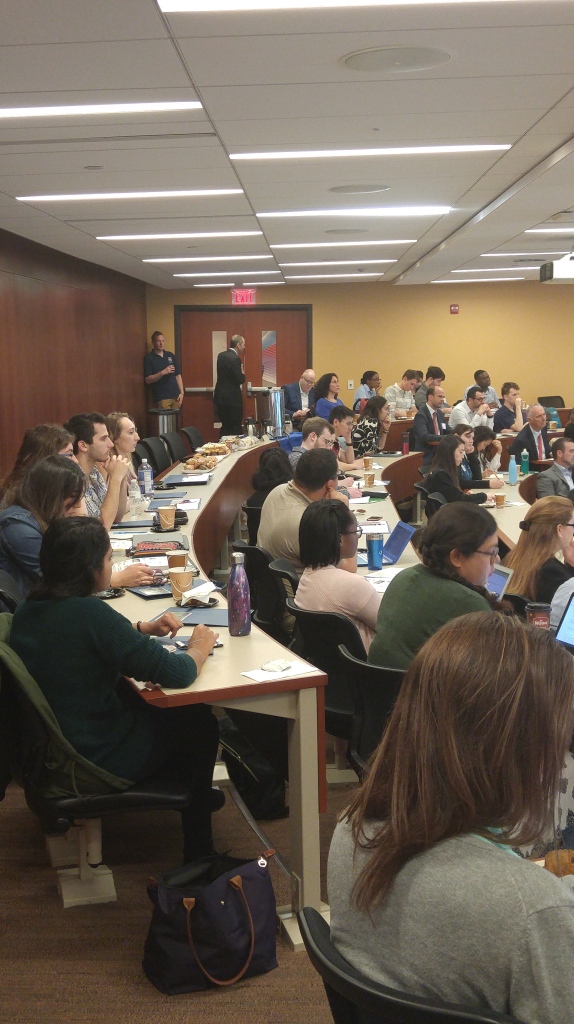

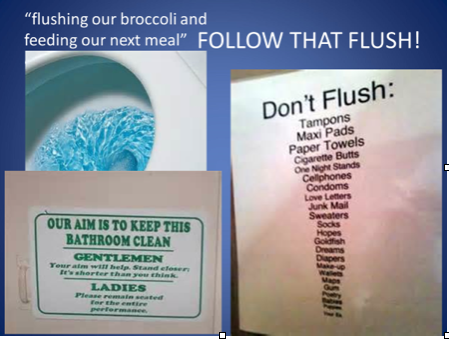
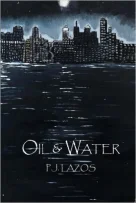




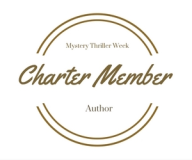

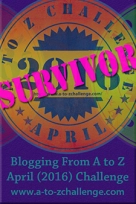


Reblogged this on themechanicsoflifedotcom and commented:
Reclaiming the water we as humans have first used is not only being responsible for our environment but actually showing we care.
LikeLiked by 2 people
So true! And
As our numbers grow and our water doesn’t it becomes more imperative! Thanks for the reblog.😆
LikeLike
What an interesting post, sense I have worked in the Water Reclamation Industry for over 30 years (formerly wastewater in my neck ofthe woods). The reclaimed water we return to the environment actually cleans our discharge river and improves aquatic life.
LikeLiked by 2 people
That’s interesting. Do you know anything about reclaiming nitrates?
LikeLike
Reblogged this on Be Like Water.
LikeLiked by 2 people
Thank you so much!!
LikeLike
A most interesting an well written post… You provide very valuable information while raising awareness on such an important topic.
Water is the first element. Hard to believe that there is no safe drinking water in many places of the world!- Have you heard of LifeStraw!?… http://lifestraw.com/ … It is such an innovative and useful tool for provision of drinking water. Climate change and human contamination are making things still harder… I hope that this situation will change in the next decades.
Great article!. Love & best wishes. 😀 😉
LikeLiked by 2 people
Life straw allows you to drink the most contaminated water through the straw, right? Amazing technology. I need to do a little more research on it. I agree. We need to get busy fixing the problem before there’s nothing left to fix.😩
LikeLike
I’m shocked at the municipalities that don’t allow grey water to water people’s own lawn and so forth (not veggie gardens if you like). In California some cities tried it, laid out rules, and it worked well. You buy earth-friendly dish soap and re-route your dishwashing water to the garden (okay that is a bit simplistic but not too, as it makes it clear how easy this type of recycling is). I’ve seen many many city governments say no when presented with the exact info/plans that So Cal uses. Really, I think that humans want to ruin the world, because they rarely do the right thing… And this is my reflection on Earth Day.
LikeLiked by 2 people
And it’s a very true assessment, I think. Not for everyone, but for the people (congress!) who don’t think science matters.😩
LikeLike
Excellent essay and advice.
LikeLiked by 2 people
Thank you, sir!😆
LikeLike
My dear, you are back on top I see. (Well…) Great post xxxxxxxxxxxxxxxxxxxxxxxxxxxxxxx and happy weekend
LikeLiked by 2 people
Thanks, Shey, and happy Earth 🌏 Day!!
LikeLiked by 1 person
You too my spesh sis who does so much for it xxxxx
LikeLiked by 1 person
Oxooxoo
LikeLiked by 1 person
p.s. Going to clean up a local park today in support of Mama Earth and then attend the science 🔬 march. It’s crazy here in the US of A!
LikeLiked by 1 person
well I was at a rally for Scottish Independence today . Fight for what you believe in terms of moments whatever they are, however far they reach. xxx
LikeLiked by 1 person
So yeah, you’ve got enough oil in the North Sea 🌊 to keep you independent for years to come!🌏
LikeLiked by 1 person
Eh ken as we say here. The speakers were all very good and covered different aspects. Putting that aside we also have wind turbines, coal–no longer fashionable for good reasons, but 300 years’ worth still– and several other forms of energy here, not to mention, the whisky industry, tourism, fish, etc etc etc… xx
LikeLiked by 1 person
Easy enough to stand on your own and then some ( as the Brits have long known). Tell me, do you see a drop in fishing because of environmental concerns or reasons? The Chesapeake Bay which is the largest freshwater estuary in our country has suffered greatly these last decades seeing crabbing and fishing catch numbers reduced dramatically. The Chesapeake Bay Program under the federal government in conjunction with the states has seen great results but now the program is slated to be cut under the president’s budget. 😩
LikeLiked by 1 person
There are fishing quotas here. Looks like you have problems too. it is probably true that there is a dwindling supply because of intensive fishing BUT as ever, when it comes to statistics there’s also damned lies and a suiting of those who like to be suited. Crazy world my darling in so many ways. No wonder you aren’t feeling too happy re certain cuts xxxx
LikeLiked by 1 person
It’s the short-sightedness of politicians that drives me mad. It’s not like they don’t have the info. 😡
LikeLiked by 1 person
Shey breathes heavily through her nose……….
LikeLiked by 1 person
Xxxxxoooooxo
LikeLiked by 1 person
Great post! I love it when you leave a conference (especially an environmental one) feeling upbeat and hopeful. Part of the reason for the feeling being that we, as individuals do have some control. Who was it said, ‘If you change the way you look at things, the things you look at change.’
LikeLiked by 1 person
I don’t know but I love that quote! Thanks, Robyn. :0)
LikeLiked by 1 person